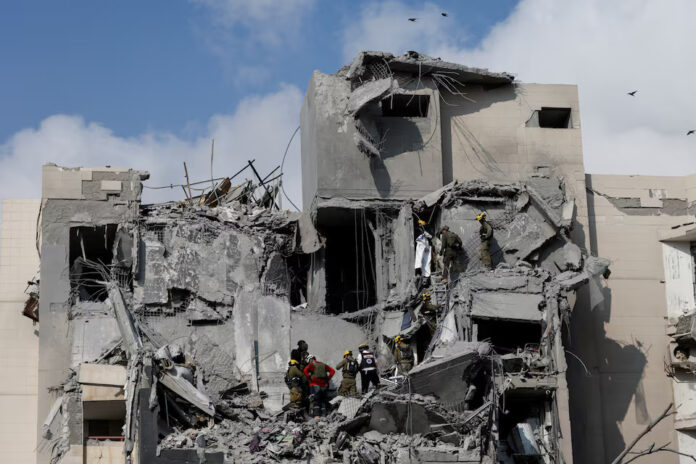Tensions in the Middle East surged anew on Tuesday after Israel accused Iran of violating a newly declared ceasefire brokered by U.S. President Donald Trump, prompting Tel Aviv to vow a “forceful” military response.
President Trump had earlier in the day announced that a ceasefire between Israel and Iran was officially in effect. However, less than three hours later, the Israeli military reported that missiles had been launched from Iran toward Israeli territory. Defense systems were activated, and the public was instructed to seek shelter.
In response, Israeli Defense Minister Israel Katz announced that he had authorized high-intensity airstrikes targeting regime infrastructure in the heart of Tehran. “Iran’s blatant violation of the U.S.-brokered ceasefire through direct missile attacks will not go unanswered,” Katz said, reaffirming Israel’s policy to retaliate against any aggression.
The escalation comes as Iran also reportedly targeted the U.S. Al Udeid airbase in Qatar on Monday, deepening concerns over regional stability. Iran’s nuclear chief, Mohammad Eslami, stated that the country was assessing damage to its nuclear facilities and has initiated plans to restore operations without interruption.
Global reactions were swift. European Commission President Ursula von der Leyen called for de-escalation and renewed diplomacy:
“We call on Iran to engage seriously in a credible diplomatic process. The negotiating table remains the only viable path forward.”
China echoed similar sentiments, urging all parties to return to a political resolution and warning against further military escalation.
Despite the tensions, global financial markets responded positively to the ceasefire announcement earlier in the day. European stocks rose over 1%, while oil prices dropped nearly 4% as fears of supply disruption eased. Middle Eastern government bonds, particularly those of Israel, Egypt, and Saudi Arabia, also posted gains, reflecting a brief boost in investor confidence.
However, Israeli defense officials cautioned that while the ceasefire had technically begun, security measures remain unchanged and the public should stay alert. The military confirmed that air defense systems remain active and that it is closely monitoring further threats from Iran.
With the situation evolving rapidly, the future of the U.S.-led ceasefire remains uncertain, and the risk of broader regional conflict continues to loom.
Written By Rodney Mbua



















